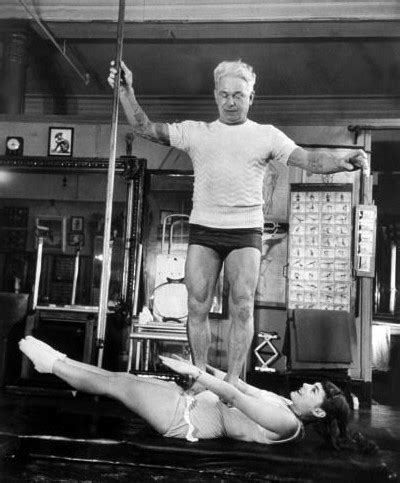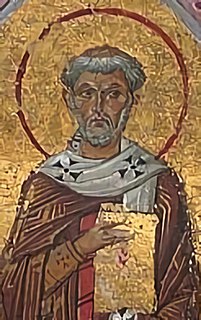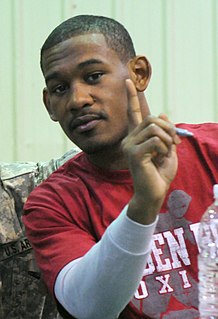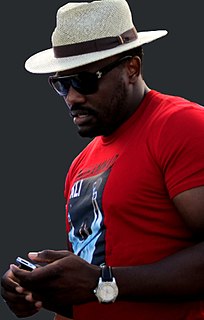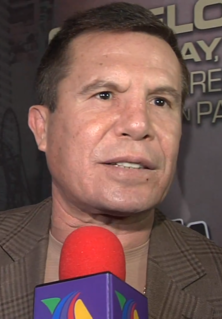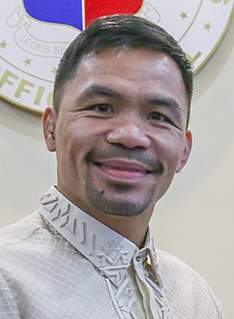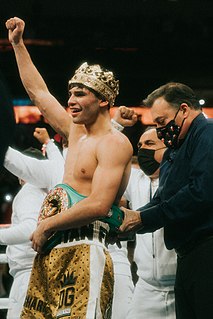A Quote by Muhammad Ali
When a man says I cannot, he has made a suggestion to himself. He has weakened his power of accomplishing that which otherwise would have been accomplished.
Related Quotes
An underpaid man is a customer reduced in purchasing power. He cannot buy. Business depression is caused by weakened purchasing power. Purchasing power is weakened by uncertainty or insufficiency of income. The cure of business depression is through purchasing power, and the source of purchasing power is wages.
In the ardor of his enthusiasm, a youth set forth in quest of a man of whom he might take counsel as to his future, but after long search and many disappointments, he came near relinquishing the pursuit as hopeless, when suddenly it occurred to him that one must first be a man to find a man, and profiting by this suggestion, he set himself to the work of becoming himself the man he had been seeking so long and fruitlessly.
If a person is cold and rigid, he feels within himself as if he were in a grave. He is not living, he cannot enjoy this life for he cannot express himself and he cannot see the light and life outside. What keeps man from developing the heart quality? His exacting attitude. He wants to make a business of love. He says, 'If you will love me, I will love you.' As soon as a man measures and weighs his favors and his services and all that he does for one whom he loves, he ceases to know what love is. Love sees the beloved and nothing else.
If we are made in some degree for others, yet in a greater are we made for ourselves. It were contrary to feeling and indeed ridiculous to suppose that a man had less rights in himself than one of his neighbors, or indeed all of them put together. This would be slavery, and not that liberty which the bill of rights has made inviolable, and for the preservation of which our government has been charged.
And he began to see the truth, that Ged had neither lost nor won but, naming the shadow of his death with his own name, had made himself whole: a man who, knowing his whole true self, cannot be used or possessed by any power other than himself, and whose life therefore is lived for life's sake and never in the service of ruin, or pain, or hatred, or the dark.
Most of the world's great souls have been lonely. Loneliness seems to be one price the saint must pay for his saintliness... Always remember: you cannot carry a cross in company. Though a man were surrounded by a vast crowd, his cross is his alone and his carrying of it marks him as a man apart. Society has turned against him; otherwise he would have no cross. No one is a friend to the man with a cross.
... the Apostle says, 'he that says he abides in Christ ought himself also to walk as He walked' (I Jn. 2:6). Otherwise we make a vain pretence and show, if we follow not His steps, Whose name we glory in, and assuredly they would not be irksome to us, but would free us from all dangers, if we loved nothing but what He commanded us to love.
One of man's important mistakes, one which must be remembered, is his illusion in regard to his I. Man such as we know him, the 'man-machine,' the man who cannot 'do,' and with whom and through whom everything 'happens,' cannot have a permanent and single I. His I changes as quickly as his thoughts, feelings and moods, and he makes a profound mistake in considering himself always one and the same person; in reality he is always a different person, not the one he was a moment ago.
Every man is of importance to himself, and, therefore, in his own opinion, to others; and, supposing the world already acquainted with his pleasures and his pains, is perhaps the first to publish injuries or misfortunes which had never been known unless related by himself, and at which those that hear them will only laugh, for no man sympathises with the sorrows of vanity.
Man is man because he chanced to develop intelligence instead of instinct; otherwise he would to this day have remained among the anthropoid apes. He has turned away from nature, become unnatural, as it were, disliked the earth upon which he found himself, and changed the face of it somewhat to his liking.
What a wee little part of a person's life are his acts and his words! His real life is led in his head, and is known to none but himself. All day long, the mill of his brain is grinding, and his thoughts, not those of other things, are his history. These are his life, and they are not written. Everyday would make a whole book of 80,000 words -- 365 books a year. Biographies are but the clothes and buttons of the man -- the biography of the man himself cannot be written.




